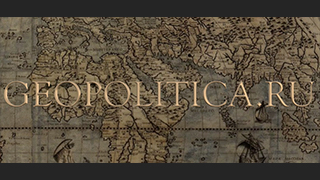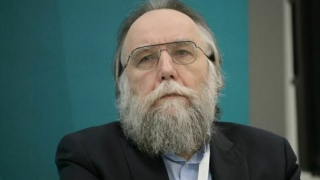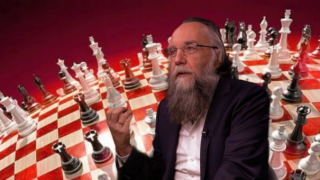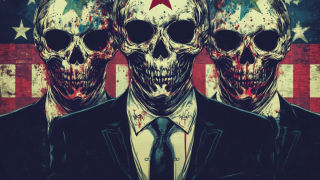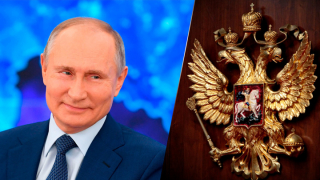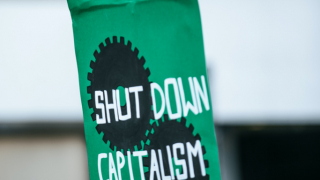POPULISM: THE RULE OF THE PEOPLE AND THE NEW GLOBAL IDEOLOGY
Many people think that “populism” is just a pejorative designation of spontaneous anti-elite performances in Europe and other countries that affect the landscape of modern politics. “Populism” is most often understood as the absence of a consistent political ideology — such as social democracy, liberal democracy, socialism, nationalism, or clearly formulated republican ideas. Moreover, “populism” is considered to be all that falls outside the bounds of the ideology that modern global elites adhere to.
Today, the elites profess liberalism almost everywhere. The debate is only about what should be more in liberalism - the right part (emphasis on the economy, freedom of enterprise, large markets, monopolies, tax cuts, etc.) or the left (gender policy, migrants, human rights, etc. ) But both there and there we are talking about liberalism (economic, political or generalized, integral). Everything that goes beyond the limits of this widely understood (right-left) liberalism is usually called "populism."
The end of history and the triumph of liberalism
Political science, in addition to liberalism, distinguishes non-liberal, illiberal or even anti-liberal ideologies - nationalism (anti-liberalism on the right) and communism, socialism, social democracy (anti-liberalism on the left). But they are not populist, because we are talking about full-fledged worldviews (fascist, national socialist or communist), which are ideologically and historically defeated by liberalism. In the course of the twentieth century, liberalism first defeated fascism (together with communism), and then communism (in the Cold War). This was the political and ideological content of this century. From now on, the dominant (politically correct) ideology remained exclusively liberal.
Fukuyama’s thesis about the “end of history” is based on the fact that liberalism has historically triumphed, since there are no more fascists or communists. More precisely, neither the Nazis nor the Communists pose a serious and thorough - symmetrical - threat or alternative to liberalism. But since only liberals remained on a planetary scale, they have no one to argue with, no one to wage an ideological struggle - all the elites of all countries are liberal, the alternatives are exhausted and defeated, they are over, there are no more grounds for ideological conflicts. Now, Fukuyama reasoned, the world will become a global united liberal humanity under the leadership of global liberal elites and the World Government. The policy will be replaced by the economy. There will be a single World State - a global civil society, "open society."

Flickr
The basis for the "end of history", according to Fukuyama, are two fundamental facts: the end of communism in 1991 and the earlier end of fascism (in 1943) and national socialism (in 1945). Later, milder forms of nationalism were finally dismantled - Peronism in Argentina, Franco regimes in Spain and Salazar in Portugal. The latest ideologies of the “Third Way” in the Third World (in the spirit of Arab Ba'athism) fell not long ago. All illiberal ideologies today are destroyed along with their carriers - countries, regimes, political systems, economic models. There was only liberalism, with its practices, values.
Populism: liberals fall prey to “conspiracy theory”
In the 2000s and especially in the last decade - since 2010 - a completely new phenomenon appears in politics that challenges liberalism. It arises primarily in the West, but it is constantly and fairly rapidly growing and expanding throughout the world more and more, all over the world. This began to be called “populism”: mass protests against the policies of global liberal elites, the nomination of new leaders to defend such an orientation, and the growing influence of populist parties and movements. Moreover, this populist challenge, being oriented strictly against liberalism, does not come from the Communists (they are no longer global power) and not from the Nazis (especially since they are not there, the fascist regimes were defeated more than half a century ago). There is neither Nazi Germany, nor fascist Italy, nor the USSR. There are no more illiberal regimes, and the ideologies and political systems corresponding to them have disintegrated, scattered, and become a thing of the past.
The communist regime in China cannot be considered in the full sense of the word neither "communist", nor even "left". In economics, it is based on liberalism, and politics relies on accented nationalism and realism. In the ideology itself, Confucian motives are increasingly growing, significantly changing the very content of Chinese society. With all the successes of China, this syncretic and ever-changing set of ideas with the predominance of pragmatism can hardly be considered a serious ideological alternative for liberals. Moreover, earlier, especially in the 1980s and even in the 1990s, most analysts believed that the liberal reforms of the Chinese economy would naturally lead to the weakening of the power of the Communist Party and ultimately abolished, and China to follow the post-Soviet path. This did not happen, but still China is still not seen as a serious ideological alternative to liberalism.

White house
Nevertheless, liberalism has an enemy - it is populism. In fact, this is an illiberal policy, which is not nationalistic (fascist), nor socialist or communist. This new phenomenon in politics has become an almost abusive concept. Liberals cannot recognize the existence of any kind of anti-liberal ideology beyond fascism and communism and are trying to impose such an interpretation of “populism” that would refer this phenomenon to a new form of fascism or left anarchism. Liberal elites are trying to explain populism with the help of old ideological cliches (such as veiled fascism, cryptofascism or veiled communism, cryptocommunism). Thus, a new type of “conspiracy theory” arises, which liberals now believe in (whereas earlier it was the property of marginal - often extremist social groups)
Italy's yellow-green government and yellow vests: against the liberal Center
In fact, we see totally different thing in populist movements. Populism is the rejection of liberalism - yes. This rebellion against global liberal elites - yes, exactly. This is a sharp and thorough - conscious - disagreement with everything that liberal globalist elites say and do. The populists clearly and clearly realize that neither liberal theories nor the ensuing bottom-up practices are acceptable to them, but the results of putting these practices into practice. Since the growth of migration, multiculturalism, gender policy, posthumanism (and transhumanism), the breakdown of traditional families and the promotion of new technologies (virtualization, Artificial Intelligence, etc.) are an integral part of liberal ideology, the costs of introducing this into society are dissatisfied - it’s completely logical - attributed to the liberals. So the populist protest is directed against the specific actions of the liberal elites, and, most importantly, against their worldview.
The rebellion of populists in Italy led to the creation of the yellow-green government of Di Maio-Salvini (left populists Di Maio from "Five Stars" and right populists of Salvini from the "League"). Despite the dissimilarity of the theses of the “Five Stars” and the “League”, the object of their common hatred and total rejection is the liberal Renzi, a prominent representative of the globalist Center, liberal democracy. Similarly, in France, the Yellow Vests - neither right nor left - are rebelling endlessly against Macron, who is the embodiment of liberalism. Who is Macron? This is a mechanical module that does not have its own position and embodies the general strategy of global elites. At the head of France today stands the faceless and narcissistic ordinary Rothschild functionary. The French reject him both because of the inefficiency of his policy, and because of his arrogance, and because of the slurredness of his discourse. But most importantly, he is rejected because of his liberalism. Macron is not even a liberal, but liberalism itself. It is so “no one” (as a politician, as a person) that liberalism passes through it unhindered, almost like Artificial Intelligence.
Populism wants to be neither left nor right
So what is populism? What is this phenomenon that opposes liberalism and yet is neither communism nor fascism? This is the most interesting. Those who carefully and thoughtfully follow this process in the West recognize that this is a new phenomenon. They agree that it is indeed wrong, too simplistic, and incorrect to describe populism as cryptofascism, cryptocommunism, or even their combination. Conspiracy theories and old clichés applied to new phenomena only distort the picture, confuse it, and do not allow one to understand the essence. No, this is completely different, because it is a phenomenon that categorically and quite consciously refuses to explain itself in ideological terms, which dictates the politics of Modern.
Populism does not want to be left, does not want to be Marxism, does not want to be social democracy - and this is very important. The populists reject this - they do not see themselves as bearers of the conventional political ideology of the left in the West. And this is characteristic of all left-wing populists - from The Five Stars (Italy), the Melanshon movement (France), movement of Sahra Wagenknecht (Germany), Podemos (Spain), or supporters of Tulsi Gabbard or Bernie Sanders (USA).
But in the same way, most populists do not see their place in the classical right, nationalist ideology. The populists do not want to be right, they do not want to be nationalists, much less fascists. Among them there is a persistent rejection of migration, there are certain elements of nationalism, but they do not dominate, are not dominant and are characteristic of many European workers who reject migrants not for cultural and ethnic reasons, but for economic reasons. Some of the populists reject the same unlimited migration for cultural reasons, but without any connection with nationalism, and even more so with racism or xenophobia.
The claim to liberalism is not only migrants. This is an ineffective policy, and a middle-class crisis that is not growing, but shrinking, and the lack of worldviews, and the suffocating domination of large monopolies over the real economy, and gender policy that equates perversions with the norm. For example, in France, opponents of the legalization of same-sex marriages have gathered multimillion-dollar demonstrations as part of the “Manif pour tous”. This is overwhelmingly the most common middle French. At such rallies and processions there is no ideology at all - the legalization of same-sex marriage provokes the political indignation of ordinary French people (not communists and non-fascists, just French). Of course, they are trying to write them down as “fascists,” because the family is considered a conservative institution, but this is absolutely not so. Manif pour tous does not contain anything “conservative”. It’s just that people don’t agree not with the very presence of homosexuals, but with giving them a normative status and with the adoption of adopted children by such pairs. All of France categorically rejects this, and political elites say - "we wanted to spit on millions of demonstrations, you are nobody, we pass the law on homosexual marriages, and you pigs, keep quiet."
Democracy as a minority power
Thus, liberal elites are becoming more and more arrogant and less and less democratic.
Today, liberalism is at odds with democracy. I had a conversation on Canadian television with Fukuyama, during which I asked him: what is democracy for modern liberals? Is it the power of the majority? He replied that no - this is the power of minorities against the majority.

Flickr
This is what liberal democracy is today. Liberalism is becoming more and more totalitarian; it no longer admits any democracy (in the usual sense). Liberal elites usurp power, and are called "populists" by all those who question this usurpation. In a sense, populists are closer to democrats (as they were understood before). Populists are a democratic majority movement. Populists are those who view democracy in the old way (democracy is the rule of the majority). And liberal elites see democracy in a new way - as the power of these liberal elites themselves, representing minorities and minorities. That is, in the view of modern liberals, democracy is the power of minorities. Liberals guard minorities against the majority, precisely because the majority is a potential carrier of populism. And further, according to the logic of liberals, the majority can choose someone “wrong one” - for example, not Macron, but Marine Le Pen, not Renzi, but Salvini, not the European Union, but Brexit, not Hilary, but Trump. And this is a disaster for the liberal elites. People can choose the “wrong one”.
And what does “right one” mean? From the point of view of classical democracy, “right one” is the one whom the people have chosen. From the point of view of liberals - no, “right one” should be a liberal from the globalist elite, only he is legitimate in their eyes. Therefore, the people have the honorable function to choose the one whom they are told to choose the liberals. And if a people does not want to vote and recognize their legitimacy, then it becomes a “populist,” and populism turns out to be a derogatory term that applies to politically incorrect elements of society. The circle closes. In fact, we are dealing with the liquidation of democracy, with its dismantling. All the signs of an ideological dictatorship are evident - the third totalitarianism (if we consider the first totalitarianism to be Soviet and the second to fascist).
People as a Concept: Renaissance and Ancient Origins
Here I wanted to draw attention to the very concept of "people." It has an interesting fate. On the one hand, the people are the basis of all modern democratic constitutions, which states that the people are the legitimate source of power. It would seem how in such a situation it is possible to insult a people with a derogatory term? If a people is a source of power, how can the term “populism” be used to demonize and discredit the most important holder of power? After all, “populism” is the same as “nationality,” the word itself is formed from lat. populus, fr. le people, ital. il popolo etc. But the people, according to the Constitution, are the main legitimate holder of power. How can one blame the main legitimate bearer of power for being himself ?!
An important consideration arises here, which is of great importance in all senses - including possibly, first of all, in the context of constitutional law: how is the concept of people interpreted with its severity? To understand this, you need to make a brief digression into political history.
Initially, the concept of "people" fell into the constitution of the New Age before the Enlightenment, and since then it has been invariably and firmly there. “People” is a concept of the Renaissance. In the Renaissance, the concept of the people was returned from the cultural circle in which it was known in Antiquity - in classical Greece and in Rome. This term in Greece and Rome was understood as a certain organic community of carriers of a single tradition. The concept of a people has never been quantitative; it has been qualitative. The people consisted of citizens - people of a common origin, ancestors, culture, tradition. The people was a concept that included a strictly defined identity - roots, cults, history, connection with the earth and the gods. The totality of all in a row has never been considered a "people." The people were thought of as a qualitative unity, as carriers of a single culture, a single tradition, a single language, having a common origin, remembering their ancestors. The people included residents of a particular city (polis), region, village, locality.
The famous formula is the definition of the "Roman people" - Populus Quirites Romanus, which belonged to the "citizens" ("Quirits") along with the highest aristocracy of patricians who made up the Senate, which gave the legal formula - S.P.Q.R. (Senatus Populusque Quirites Romanus). Not only patricians, but also the Roman people acted as the bearer of power and legitimacy in the system of Roman politics.
The people were the most important category of Antiquity, transferred to the Renaissance, which was characterized by just a new rise in interest in Antiquity. In this context, she entered into legal documents. A people is a very ancient and fundamental concept, high-quality, spiritual, sacred. To be part of the people, to belong to the people is the same as to belong to a living being, closely connected with the divine, with history, with Providence. A people is a providence concept. The idea of God is embodied among the people, as Herder later defined it in romanticism. The sacred concept of the people fell into the Constitution of the New Time from the Renaissance.
The ideological usurpation of the concept of people
But gradually, already in modern times, this concept began to be interpreted differently. In the texts of the Constitutions themselves it was preserved. This is a tribute to the Renaissance, and therefore, Antiquity. It is this ancient and sacred meaning that is primary even today - in our constitutions, including the Constitution of the Russian Federation. Under the people, which is the highest carrier of power and sovereignty, the ancient meaning is meant.
But gradually, different political ideologies that prevailed in various periods and regimes began to interpret the people in their own way. And here there was a usurpation of this concept: the liberals began to interpret the people as a "set of individuals." The fact is that the ideology of liberalism considers a person to be an individual. And when liberals are confronted with any social phenomenon, they descend it to an atomic individuality. This is precisely the main content of the theory of human rights - this theory completely follows from liberal ideology and, in another context, either radically changes its meaning or completely loses it. But such an interpretation of the people as a set of individual personalities is completely contrary to the Renaissance or ancient concept. This is a modern liberal interpretation. In the limit, we can say that there are no liberals of the people, there are individuals.
Socialist regimes interpreted the people as a class, an even more extravagant interpretation. In part, left-wing ideologies accept the liberal concept of individuals, but reduce all types of people to two classes — the bourgeoisie and the proletariat, which have a different type of consciousness. Therefore, for the ideologists of Marxism or socialism, the people are a heterogeneous mass, which should be divided according to class and whose unity is fictitious. Thus, the class interpretation precedes the very idea of a people, making it conditional, not fundamental, and even deceiving. There are also no people here, there are classes.
The nationalist interpretation is also artificially and ideologically colored. For a nationalist, people are people who have the citizenship of a country. A nation is a political concept. It is an artificial construction based on individual identity. For nationalists and fascists, people are inextricably linked with the state. Racists interpret it through the race, which is also an artificial construct. Thus, for nationalists there is no people, there is a nation (or race).
Thus, in none of the political ideologies (neither in liberalism, nor in socialism, nor in nationalism) does the concept of “people” exist. Moreover, the people cannot be decisive for them, since each ideology interprets it in its own way.
We are forced to state that in modern times there was a fundamental substitution of a fundamental legal concept. The usurpation of the right to interpret that instance, which should be the primary source of any interpretation, has occurred, since interpretation in some sense is power. In fact, by providing an opportunity for the bearers of the main political ideologies of Modernity to interpret the concept of people, we commit a crime against the constitutional system and its foundations.
When some ideological group in society usurps the right to interpret the basic and central legal concept - “people”, acting as the highest source of power, and therefore both legality and legitimacy, we are talking about the fact of an unauthorized seizure of power, about usurpation.
The populist uprising today is the return of the people to their legal, constitutional rights. In any modern ideology (liberal, nationalist, socialist) people, in fact, do not exist. Instead of the people there is its interpretation based on one or another ideology. But in this way the usurpation of the constitutional rights of the people occurs. The people themselves are deprived of their being, deprived of content.
Populism brings us back to this theft, to this constitutional crime. Strictly speaking, liberalism, communism and fascism should be legally prohibited. Therefore, the power of liberal elites, based on ideology (individualistic interpretation of the concept of people), is not only not legitimate, but criminal at the root. This is a legal state crime.
Constitutional Prohibition of Ideology
It is very interesting that in the Constitution of the Russian Federation there is a ban on ideology. If we take a closer look, this ban on ideology can have a very deep meaning. Of course, this point was introduced in the 90s by liberals who sought to get rid of Soviet ideology and put the maximum number of barriers to its revival. The liberals who were in power in Russia in the 90s, thereby wanted to ban all ideologies other than their own - that is, from liberalism. But the constitutional provision itself, albeit adopted situationally, remains as it is. In Russia, any ideology is banned as a state. Including - and above all - liberal. The liberal cannot speak on behalf of the state, give liberal ideas, definitions and philosophical theses the status of an official position. This also applies to other ideologies. But this is true, first of all, with respect to liberals who clearly abuse power - primarily in such areas as economics, education, and culture, and do it on behalf of the government, state, and government.
Therefore, the constitutional rule on the prohibition of ideology should be interpreted as a prohibition on usurping the rights of the people to have the fullness of their own sovereignty.
No ideology can tell us what a people is. Only the peoplesknow who they are; only the people need to be asked about this, and only the people are the subject of history and the main carrier of sovereignty and law.
Populism as a return of people to politics
Populism is this return of the people to politics. But when the people try to say that they do not like the ideology of the ruling elites, the elites begin to struggle with the people.
What political moment do we live in today? Today, the struggle of the usurpers of the rights of the people against the people itself is unfolding. And this problem is not limited to Western countries. Almost the same thing happens in other areas of the world. Including in Russia. Liberal elites are global. Segments of this globalist network as the fifth and sixth columns are in almost all states. And almost everywhere they occupy a leading position in the relevant political systems. There is solidarity between these elites: everyone has a common enemy, a people (regardless of what kind of people they are talking about), who are challenging them today, gradually discovering the fact of usurpation of power, the illegitimacy of the very phenomenon of liberal dictatorship, which today has an almost planetary scale. The “End of History” in the 90s, proclaimed by Fukuyama, was an appeal to liberal global elites to unite in a World Government. But this was not destined to take place: liberal plans came up against the resistance of the peoples. Moreover, it did not come from classical ideological opponents (nationalism and communism), but from a lively and straightforward majority of the people. From democracy itself.
Imperative of solidarity of peoples in the fight against the globalist elite
Liberalism is an unconstitutional ideology, and the other ideologies of communism or fascism are exactly the same. All three forms of interpretation of the people (through liberalism, socialism or nationalism) are unconstitutional because they claim to interpret the basic concept of the Constitution. They are possible only in the second stage. The people demand: first recognize me as the main sovereign, and only then - subject to the recognition of my integrity, integrity, superiority and sovereignty - offer your interpretations, but not vice versa. You (liberals, communists or fascists) have no right to impose anything on the people, based on the interpretation of yourself in accordance with your biased and subjective political teachings.
That are the reasons of the rise of populism. This is the deepest ideological, constitutional, legal process that can end either with the abolition of the people from the Constitution (and thus the end of democracy in general), or with the revolution of the people - when the global liberal elites are simply destroyed, swept away and, ultimately, set outlaw. Because their global power is illegal. To be a liberal today, a member of the liberal elite means to be a criminal, a usurper. This is an unconstitutional act. Liberalism is unconstitutional and should be recognized as such. We have no hesitation when we declare an ideology calling for terror and violence prohibited. Liberalism carries out semantic terror, ideological violence. This is a totalitarian sect today, taking advantage of the historical moment in order to gain unlimited power on a global scale. Today this sect feels that a wave of popular anger is rising against it. And she counterattacks, trying to push the sprouts of populism in the bud.
This is the new ideological and political map: liberals (right and left) against populists (“right” and “left”, but in fact, neither right, nor left) or, what is the same, elites against peoples. Globalist elites are international, they clearly recognize their planetary solidarity, common interests and the need to support each other in the struggle against peoples. The peoples are fragmented. Therefore, in the uprising of populism, that is, peoples, any signs of nationalism (the third political theory) can be extremely dangerous. Liberals will not fail to take advantage of conflicts between peoples to continue to hold them under their own power. This implies the imperative: populists should be no less united in their struggle than their opponents globalists.
Ban on three ideologies
Why are we talking more about liberalism? Because, unlike the ideological conditions of the twentieth century, today socialism is not particularly influential and, moreover, does not have the ability to totalitarianly dictate its ideological principles. Also, socialists today have almost no influence on the definition of basic legal categories. And if they do, then in the case of China or North Korea, then only on a regional scale and moreover, an adequate assessment of this influence requires a thorough analysis of such legal systems as Chinese or North Korean. And there everything is far from what it seems to an outside observer. But it goes without saying that the ban on ideology should concern not only liberals, but also leftists.
Accordingly, nationalists should be legally banned, because they replace the people with their concepts (etatist, nationalist, racist or xenophobic, but in any case artificial). The danger of nationalism lies precisely in the fact that it can easily transfer the righteous anger of peoples directed against the ruling elites to other peoples, minorities or representatives of other cultures and faiths. Globalists will not fail to take advantage of this.
The people and their Word
The people must go forward. That he should be the main carrier of sovereignty. In almost all modern societies, this is not so. And it should be so. Therefore, most modern societies are illegal, unconstitutional. The power structure in these modern - most often liberal - societies is in direct conflict with basic constitutional rights.
Populism should not be perceived simply as a spontaneous reaction of the population to the illegitimacy of globalist elites. This should become a new ideology that puts people at the forefront. This must be a democratic movement. This should be a constitutional process of the struggle of the people for their sovereignty.
The people should not humiliate themselves, ask, or even demand from the elites "give us rights, provide us with a better life." Modern elites are illegitimate. We must not turn to them, we must free ourselves from them, displace them, and abolish them. They simply should not be. Liberal elites are usurpers of power, they are unconstitutional. And the place of people who committed the coup d'etat, at least, in places not so distant (if not worse).
Those people who are now declaring war on the people and using the concept of “populism” in a derogatory manner are the enemies of our peoples. These are anti-constitutional elements that have usurped the right to speak on behalf of society, on our behalf, on behalf of the people.
No one except the people can speak on his behalf. Therefore, the struggle of peoples for their voice, for their power and for their supremacy is a historical battle for the word - for the Word.




